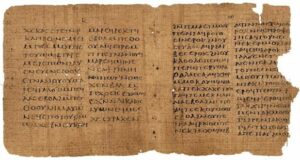Tom Fitton, president of Judicial Watch, has shared important background on both the laws concerning the election of a president and concerns over how ballots were counted in the 2020 election. Judicial Watch, Inc. is a conservative, non-partisan educational foundation, which promotes transparency, accountability and integrity in government, politics and the law.
I take no comfort in saying that we saw this coming. Back in June, for example, I told Lou Dobbs:
“It’s been a state by state battle to protect the integrity of our elections. There will be a severe temptation to cheat, and now that’s going to be a lot easier to do because our system is going to be overwhelmed with ballots and applications for ballots.

Tom Fitton | President, Judicial Watch
We’ve proven repeatedly – because we’ve been winning in court to clean up voter lists – that the lists across America are filthy in terms of having more people on the rolls than are eligible to vote. And those people, you can be sure, are going to be to be the groups getting some of these ballots.
Our most recent research in September revealed that 353 U.S. counties had 1.8 million more registered voters than eligible voting-age citizens. In other words, the registration rates of those counties exceeded 100% of eligible voters!
I have to wonder how much worse it might have been had we not been busy in court. As you know, we are a national leader in seeking cleaner elections.
In 2018, the Supreme Court upheld a voter roll cleanup program that resulted from our settlement of a federal lawsuit with Ohio. California settled a lawsuit with us and last year began the process of removing up to 1.6 million inactive names from Los Angeles County’s rolls. Kentucky also began a cleanup of hundreds of thousands of old registrations last year after it entered into a consent decree to end another Judicial Watch lawsuit. In September this year, we sued Illinois for refusing to disclose voter roll data in violation of federal law.
We just analyzed data in the key state of Nevada where we found that in Clark County, there were about 154,000 “inactive” voters on the election rolls just before Election Day. Speaking of Election Day, federal law seems clear that the key results were supposed to be decided on … Election Day. Here is one of the relevant statues:
The electors of President and Vice President shall be appointed, in each State, on the Tuesday next after the first Monday in November, in every fourth year succeeding every election of a President and Vice President. 3 U.S. Code § 1
Indeed, on Tuesday, the president had the votes to win the presidency. These vote totals are being changed because of unprecedented, extraordinary, illicitly secretive, and inherently suspect counting AFTER Election Day that continue as I write. There will be court battles (which will almost certainly involve your Judicial Watch) but the presidency may ultimately come down to a fight in Congress over the counting of Electoral College electors from the states that are engaged in the slow-motion counting of votes.
State legislatures in Pennsylvania, Michigan, Wisconsin, Georgia (and maybe Arizona) will have decisions to make – endorse and ratify what happened this week to President Trump’s vote totals or appoint a slate of electors to reelect the president. So, in addition to supporting Judicial Watch’s effort to secure the election, you may want to share your views on the election controversy with your elected representatives, both in your statehouse and in Congress.
 Metro Voice News Celebrating Faith, Family & Community
Metro Voice News Celebrating Faith, Family & Community 







